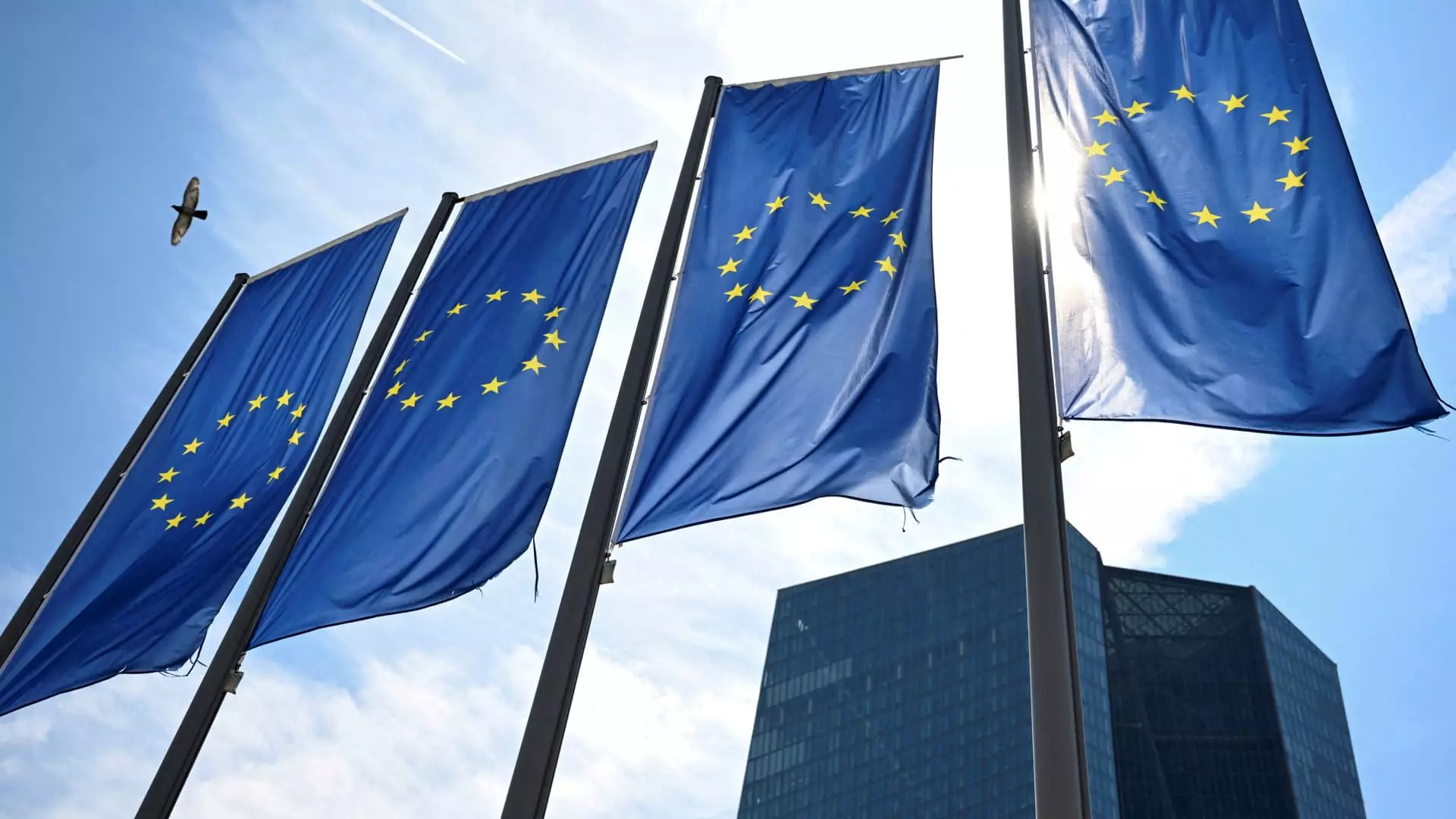As European leaders convene to strategize on substantial investments in defense, current provocations from the United States government, particularly under President Donald Trump, dominate the backdrop of their discussions. This pivotal meeting comes at a time when the potential for increased tariffs threatens to sour transatlantic relations further. The implications of President Trump’s recent tariff announcements are significant, targeting countries like Mexico, Canada, and China, and leaving the European Union (EU) in a state of cautious anticipation—aware that they might be next.
The growing trade deficit between the U.S. and the EU has put the latter in a precarious position. Trump’s assertion that the European Union has taken advantage of American trade policies resonates with the sentiment of protectionist rhetoric. The staggering $300 billion trade gap he references appears to bolster his case for aggressive tariff implementations. This not only reflects a deeper economic concern but also a broader geopolitical strategy aimed at reshaping trade dynamics globally.
In 2023, data from the European statistics office highlighted the fact that the U.S. remains the EU’s most significant export market. The intricacies of this trade relationship are noteworthy; while the EU predominantly exports automobiles and pharmaceutical products to the U.S., it relies heavily on imports of oil and natural gas from America. This interdependence complicates the narrative, as EU leaders must balance their responses to U.S. tariff threats with the economic realities of their trade relationships.
As EU leaders convene, a palpable tension looms. A senior EU official, opting for anonymity due to the sensitive nature of discussions, indicated that the meeting’s agenda would likely be overshadowed by the potential fallout from U.S. tariffs. Although an explicit discussion on tariffs may not take center stage, the mere mention of the issue could dominate conversations.
In terms of economic strategy, the EU has begun laying the groundwork to mitigate the impacts of any potential U.S. tariffs. There appears to be a consensus among EU officials that diversifying energy imports may be one viable strategy to ease trade tensions. Enhancing the purchase of liquefied natural gas (LNG) from the U.S. could serve multiple purposes—it not only seeks to stabilize energy supplies but also positions the EU as a strategic trading partner, demonstrating an unwillingness to acquiesce to unilateral U.S. tariffs without a response.
The European Commission has expressed its strong disapproval of the U.S.’s decision to impose tariffs on certain goods, emphasizing the EU’s adherence to a low-tariff philosophy as a means of fostering economic growth and stability. The spokesperson for the Commission articulated a commitment to a “rules-based trading system,” stressing the importance of fairness in international trade practices. The EU’s promise of a “firm” response to any unjust tariffs signals an intention to assert its economic sovereignty.
However, the EU faces an uphill battle. As they prepare for potential retaliatory acts, the fear of escalation into a transatlantic trade war looms large. Diplomatic channels suggest a realization among EU officials that confronting the U.S. may be inevitable if the situation escalates any further, echoing sentiments of frustration and cautious determination.
The gathering of European leaders in the face of these challenging trade dynamics underscores a critical junction in transatlantic relations. As they grapple with the implications of U.S. tariffs while attempting to safeguard their trade interests, a combination of strategic negotiation and economic resilience will be paramount. The road ahead hints at complexity; however, it also presents opportunities for renegotiating partnerships and redefining economic alliances. One thing remains clear—proactive diplomacy and the pursuit of a balanced trade landscape will be essential in navigating this formidable challenge.


Leave a Reply